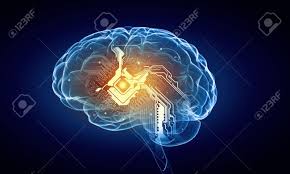Source- techspective.net
The employment rate is always a popular topic in nations around the world—often leading to political debates and economic scrutiny. However, the conversation has shifted in recent years as people start to look at things from a different perspective. The critical question very soon may be, “What if I can’t find a job because I’ve been replaced by artificial intelligence (AI)?”
As with anything that involves technology and the future, there are a wide range of projections and prognostications, but most of them end with a conclusion that humans need not apply. How come everybody is talking about it all of a sudden? AI is not some exciting but far away possibility anymore. It is a real thing that is already a big part of our reality.
Amazon is opening retails stores with no employees. They also see robots taking over routine manufacturing processes and driverless taxis starting to appear on the roads. So, is this our future? Are we going to lose the race against machines and be replaced by AI?
What Expert Predictions Say
Numerous studies have tried to establish a connection between AI and employment. PwC conducted one of the most prominent reports, revealing some staggering figures. Namely, the company claims that millions of jobs in Britain are under threat from breakthroughs in AI technology.
To put it more precisely, here are some stats that reveal the percentage of workers who are predicted to lose their jobs in some industries by 2030:
- Transportation and storage: 56 percent
- Manufacturing: 46 percent
- Wholesale and retail trade: 44 percent
- Administrative and support services: 37 percent
Other endangered areas include accommodation and food services, construction, real estate, education, health, social work, and many more. The reason for such pessimistic figures lies in the power of automation. Most companies are trying to reduce operational costs, so they replace humans with robots.
Elvis McDermott, a talent market analyst at Best Essays, says: “While real employees demand holidays, days off, breaks, sick leaves, vacations, and many other benefits, AI requires none of that. Intelligent machines do what they are programmed to do most cost-effectively. They only need reliable software, and then the sky is the limit for their productivity.”
Could AI Generate New Jobs?
On the other side of the debate, some people claim that AI will generate new jobs to replace old ones. If governed the right way, they believe AI will not only eliminate a large portion of occupations but also produce the same number of brand new positions.
For instance, some experts firmly believe that AI doesn’t eliminate jobs. They remind readers that ATMs did not replace banks, but did exactly the opposite. ATMs lowered the costs associated with opening a new branch, and helped increase the number of banks by more than 40 percent.
The same goes for email and the post office. The volume of marketing mail and first-class mail has decreased, but the volume of total shipping of packages has increased from 3.3 billion to 5.2 billion packages.
Technological advancements bring us some benefits, too. But, if we know that robots will replace humans in some positions and open new jobs on the other side of the spectrum, can we at least accurately predict which jobs will be lost?
As we already mentioned, these are mostly positions that don’t require creative thinking. Everything that can be automated will be replaced by pre-programmed machines, which includes a vast majority of professional roles.
What Is the Future of Human Labor?
Bearing in mind that AI will likely replace manual workers and individuals who perform routine or repeatable functions that can be automated, what seems to be left for them? What is the future of human labor in the age of intelligent machines?
The critical task is to make sure that AI does not eliminate entire sectors or industry branches. While this is a real threat (for instance, the largest law firms already replace low-level employees with computer programs to reduce technical issues and human-made errors in legal research), it could be minimized with the right legislation.
New laws should address this issue more precisely—allowing employees to gradually shift from one position to another without the fear of losing their jobs. It must be done carefully, avoiding drastic changes and sudden moves that could leave thousands of people unprepared.
Another opportunity is to focus on roles that exploit emotional intelligence—a feature that machines currently do not possess. It will take a long time before AI reaches the human level of emotional intelligence, so this will remain a comparative advantage for humans in many roles for the foreseeable future.
For instance, consider occupations that demand self-awareness, empathy, social skills, and motivation. Some of these professions include team managers, psychologists, teachers, sales agents, and similar roles.
The Bottom Line
Is there a clear answer to the question above: “What if I can’t find a job because I’ve been replaced by artificial intelligence (AI)?” The truth is, we can’t be sure, but there is a high probability that some occupations will suffer more than others.
If you are working in manufacturing, transportation and logistics, retail, customer service, information gathering, stock trading, traveling industry, or pharmacy, there’s a good chance you’ll face a challenge looking for a new job sooner or later. Unfortunately, this is not an all-inclusive list because it’s almost impossible to name all the positions that will be replaced by artificial intelligence and intelligent machines.
What worries me the most is the fact that these professions employ a considerable percentage of the global labor force. It’s hard to expect that society will be able to come up with brand new solutions for all of them quickly enough. But there are also some positive signs that promise the emergence of new occupations, so I guess we will have to wait and see what happens in the next couple of decades.


